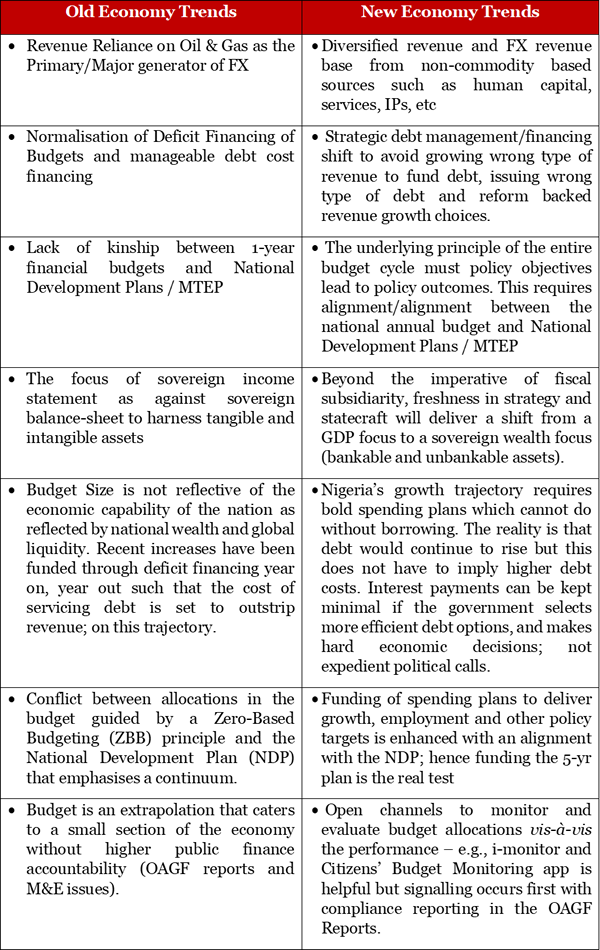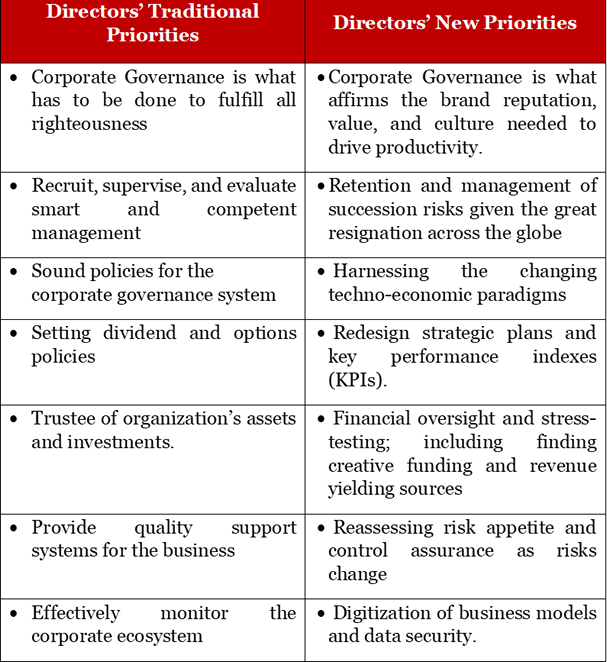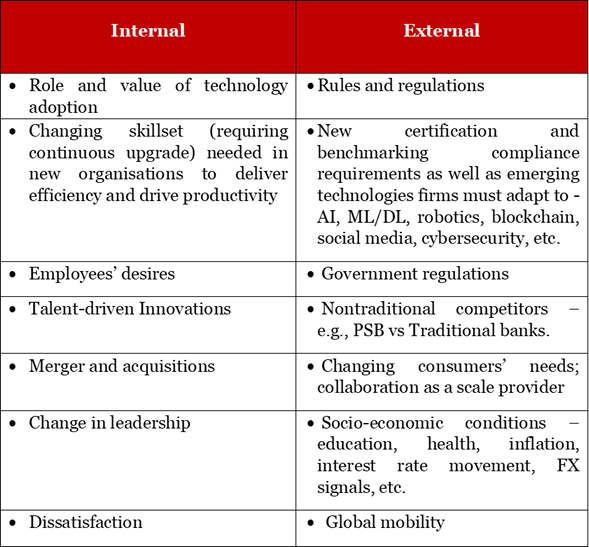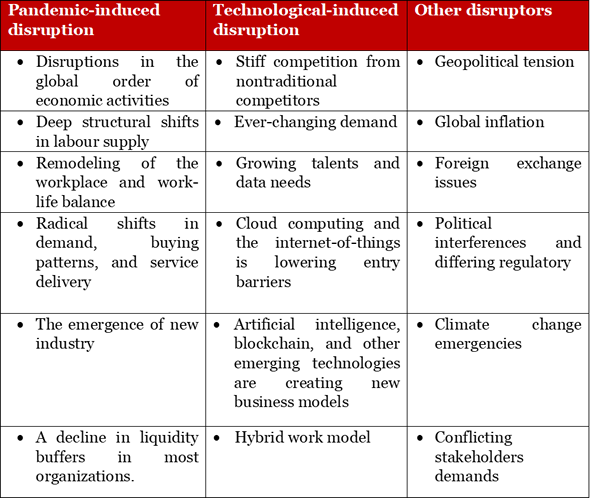Friday, February 25, 2022 / 11:00 AM / By Olufemi Awoyemi, mni / Header Image Credit: IoD Nigeria
Being guidance notes around the discussion by Olufemi AWOYEMI, mni; Chairman of Proshare at the IOD "Directors' Prospects for 2022 Webinar' held on the 27th of January 2022.
The discussion was guided by the following objectives:
- Highlight policies, programmes and initiatives that will drive recovery momentum for the corporate environment and what businesses should do; and
- Articulate ideas that will make MSMEs resilient and thrive amidst economic and social disruptions
Introduction
Coming off the back of a recession, devaluation, a pandemic, and the associated waves and fallouts of the last few years; incomes and business profits in 2021 have taken a hit in many sectors of the economy that have had to cope with, juggle, or otherwise adapt to a disruption in the traditional order of corporate and business management.
Models are now being redefined, strategy shelf life has shortened and value is up for grabs; creating both dislocations and opportunities.
While some directors successfully embraced and harnessed the changes initiated by these external events/developments through internal reforms and innovative expansion in 2021 especially, recognizing these trends as a new normal reinforced by the budget analysis we have just heard about the macro and micro implications of fiscal planning and public finance management; not a few are still anxious about the possibility of further dislocations to the norm in this pre-election year.
How directors respond therefore to these accelerating levels of uncertainties, threats, and opportunities in the economy will impact their organisational productivity, value, risk profile, and business performance in 2022. It is clear therefore that directors lagging in designing and delivering ambitious strategies for 2022 risk falling behind in the "big game"- the transformation race in the disruptive environment that must now be seen as the new normal.
The first and most important change that must happen is the mindset with which directors look at these developments. If they are able to see convergence leading to a new business cycle; they stand a better chance than adopting a victim mentality to the myriad of issues you may hear at the many outlook sessions taking place or be experiencing.
Permit me to present a model around the objectives of this session below.
Driving Performance Momentum
Understanding the Economic Changes?
The Nigerian Economic model vis-Ã -vis the global economic model is growing through some pangs and is in need of inevitable reforms or clarifications that will affect models.
Table 1: Changing Dynamics of the Economy

So What are the key changes in corporate strategies we are seeing?
The business environment is rapidly changing the conventional directors' prospects to match the dynamics of the evolving business and technological models.
Table 2: Changing Dynamics of Directors' Prospects

What are the drivers of the changes?
Transformational changes are predicated necessarily based on internal and external pressures in the organization such as strategies, plans, designs, services, products, and operations. Some observable triggers of changes in directors' prospects include:
Table 3: Key Triggers of Changes in Directors' Prospects

How should you Respond?
1. Recalibrate the internal processes to strengthen operational resilience and the corporate goal while engaging the external ecosystems to position the business for growth such as customers, suppliers, partners, and regulators.
2. Focus on efficiency and stronger stakeholder engagement by emphasizing long-term value over short-term profits.
3. Develop a basic algorithm for customer satisfaction - use customers' data to predict changing behaviour and define future strategies.
4. Systematically appraise the company portfolio through the changing workforce, customers, regulatory demands, and industry trends and prepare to divest and invest from/into different environments.
5. Invest into understanding the interactions, prospects, and risks in the assets profile that align or differ from the corporate strategies.
6. Prioritize the future to ensure optionality across the business value chain- it enhances supply chain security.
7. Prepare for a changing regulatory environment by building an effective relationship with regulators to better understand the regulatory and institutional framework of the industry.
8. Creatively engage investors and other internal and external stakeholders to craft an overarching vision that matches or at least correlate with the vision/target.
9. Seek to accelerate digital transformation and improve the company's environmental, social, and governance (ESG) risks ratings.
Current Realities and Emerging Opportunities in Nigeria
Current Realities and Businesses
1. 2022 Budget: The Federal Government's fiscal operations for 2022 are expected to culminate in a deficit of N6.39tn which would be financed by N5.14tn from new borrowing, N90.73bn from Asset sales/privatization proceeds, and N1.16tn from Multilateral/Bilateral project-tied loans. The provisions for both foreign and domestic borrowing have implications for businesses. Excessive borrowing from the foreign debt market increase the nation's debt service expenditure which limits government investment in critical infrastructure in the economy. Borrowing from the domestic market crowds out private sector investment by increasing the cost of borrowing. Businesses may need to rescale their capital structure in favour of equity this year.
2. Taxes: Early on in 2021, the Federal government announced the increase of the VAT rate from 5% to 7.5%. This is believed to have accounted for the rise in the general price level recorded in 2021. While the effect is expected to have moderated, the newly introduce sin taxes and other revised taxes are expected to push up the cost of production for business. Businesses may need to pursue cost-cutting strategies to moderate the effects of the new taxes on their products and services.
3. Public Finance: The President has indicated the intentions of his government to strengthen the frameworks for concessions and Public-Private Partnerships (PPP). He also referred to exploring innovative approaches to sustainably raise infrastructure financing, such as the Sovereign Green Bond, debt-for-climate swap, etc. These essentially are areas of opportunities for large corporate organizations to harness for growth and expansion in 2022.
4. Regulation: The federal and state governments of Nigeria through multiple laws and various ministries, departments, and agencies (MDAs) regulate and supervise the activities of businesses in Nigeria. The constant evolution of new regulatory bodies (such as the Nigerian Upstream Petroleum Regulatory Commission (NUPRC) and the Nigeria Midstream and Downstream Petroleum Regulatory Authority (NMDPRA) in the oil and gas industry) to add to existing multipolar regulators means businesses must adjust to several differing regulations. A viable option for businesses this year may be to contract the regulatory compliance assessment to a third party or risk being overburdened with sanctions and fines.
Other Emerging Areas of Opportunities for MSMEs
1. Retraining and reskilling: The world of the corporate workforce is facing a rapid transition given the increasing automation of activities within the organization. It is becoming increasingly essential to retrain and upskill existing workers to fit into the diversity of existing and emerging businesses. This is because the kinds of skills organizations now require are changing and it has weighty implications for the career paths of employees.
2. Support Services for MSMEs: The growing scale of support to MSMEs by the federal government and private financials implies that there is more in stocks for small businesses in Nigeria this year. Two key strategies of the current administration for MSMEs are conditional cash transfer and access to credit at a single-digit rate. The implication is that anyone with the right business idea or those with existing businesses can easily access funds this year. There is also the growing trend of leveraging the Fintech space to raise capital for MSMEs. Meanwhile, the governments, NGOs, and commodity trading platforms launched a few non-credit support services to small businesses last year, we expect some of these services to extend into the new year.
3. Cyber audits: cyber security audit, which reviews the business ICT infrastructure and systems, is a growing area of interest with viable prospects given the increasing adoption of ICT and remote working across all industries. The more the adoption of ICT technologies, the higher the risk of vulnerability in the software and network protocols. Cyber security audits, thus, becoming increasingly demanded to bridge the security gaps.
4. Data privacy: As consumers increasingly adopt digital technology, there is an increase in data sharing. With increased data sharing, the regulators are prompted to step up the requirement for data privacy. However, the increasing digitalization and data sharing create another valuable opportunity for organizations to be consumer-focused. This insight about consumer needs and preferences based on some demographic features can help businesses to develop new products and services that are tailored to match specific consumers' needs. This also underscores the need for data management companies or separate internal units in the existing organizations to manage consumer data.
5. Technology: The evolution of ICT is promoting the rapid development of different technologies and tech companies; continuously innovating and reducing time and distances associated with the conventional systems. These improvements have made it widely possible to share knowledge and ideas in an expanding universe, giving rise to more innovations and less human intervention. With the continuous evolution of cloud computing, big data and analytics, the internet of things, blockchain technology, artificial intelligence, and robotics, opportunities will continue to evolve along the value chains of this development.
Driving MSMEs Resilience amidst Economic and Social Disruptions
The global pandemic and the emerging technologies are the key game changers for big corporations and MSMEs alike. While the former may be able to weather the storms of the two disruptors, the latter may require more efforts to thrive and be resilient. The scope and the fragmented nature of MSMEs have made them more prone to the socio-economic disruptions that are confronting the world in recent times.
Table 4: Social, Technological, and Economic Disruptions

Policies and Programmes that will impact/drive MSMEs recovery in 2022
1. Agribusiness Small and Medium Enterprise Investment Scheme (AgSMEIS)
2. 100 for 100 Policy on Production
3. Anchor Borrowers' Scheme
4. Commercial Agriculture Credit Scheme (CACS).
5. N1 trillion manufacturing intervention.
6. National Mass Metering Programme (NMMP),
7. Nigerian gas expansion program to promote the migration to compressed natural gas (CNG)
8. CBN's e-valuator and e-invoice
9. Input and utility prices and relative changes to consumer incomes
10. Tax administration practices from FIRS, State IRS and Local Govts.
Caveat: There is a need to approach the policies and programmes with caution given that the broad objectives of the initiatives may contrast with the business goals.
Driving MSMEs Resilience
- Short-term Profitability strategies
- Internalize socio-economic shocks and risks to business models.
- Deploy technology and automation to replace redundant labour roles and improve scalability.
- Increase stakeholders' interactions through digital platforms and adapt a hybrid work model for employees.
- Reduce the complexity of the business, divest underperforming assets, and quit underperforming products and services.
- Introduce a pricing model that can help attract new customers and retain existing customers.
- Leveraging partnership marketing and micro-influencers to reach a broader audience.
- Growth and Investment Strategies
- Anticipate and manage contrasting regulations and opportunities from state and federal governments.
- Effective data utilization to develop new products and services.
- Develop innovative service delivery systems and channels for interacting with stakeholders.
- Explore new territories.
- Partnership with a larger corporation with a solid base and strong prospects.
- Merger and acquisition.
Concluding Thoughts
Essentially, directors in 2022 must keep their eyes wide open to potential risk factors and manage them appropriately while also leveraging the new normal for long-term sustainability and inclusive growth.
 Lagos, NG • GMT +1
Lagos, NG • GMT +1











 126 views
126 views







 Sponsored Ad
Sponsored Ad
 Advertise with Us
Advertise with Us









